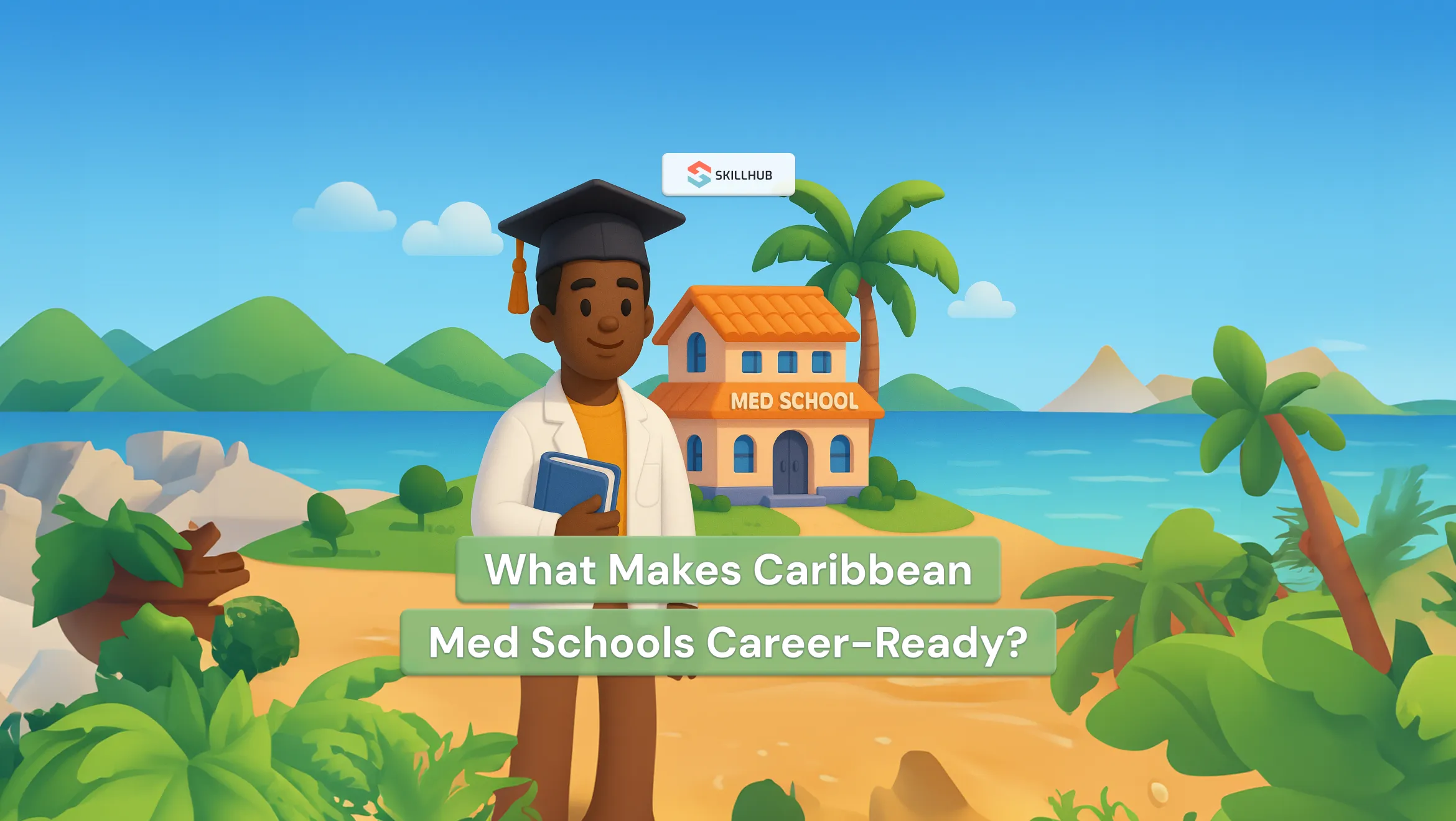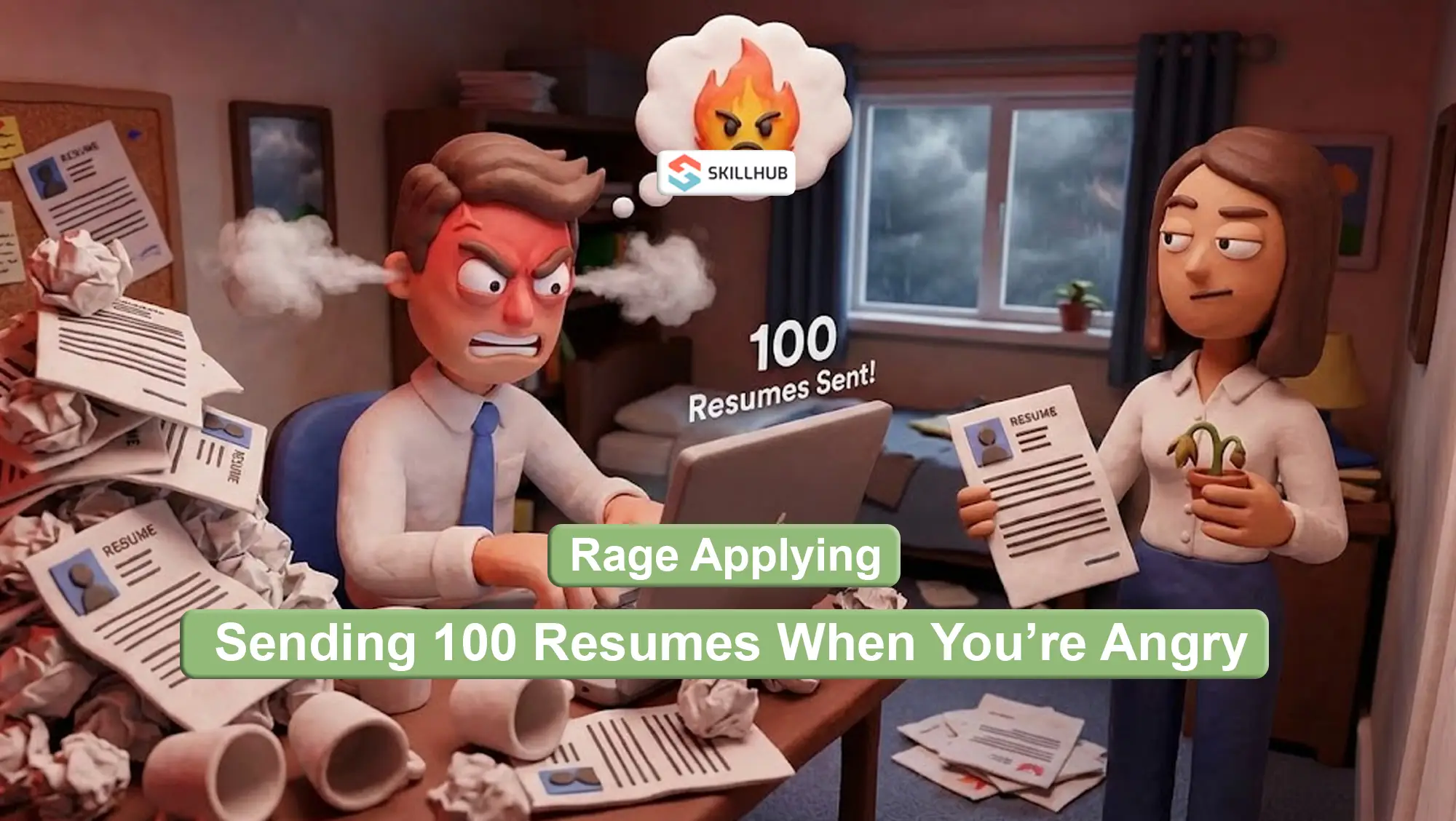What Makes Caribbean Med Schools Career-Ready? A Resume-Builder’s Perspective

What Makes Caribbean Med Schools Career-Ready?
If you can envision career-ready education, chances are you'll think automatically of tech bootcamps, MBA school, or public health school that will teach you how to get hired. But what if you were thinking of medical school—specifically, Caribbean medical school?
Caribbean medical schools have been a non-traditional choice for students who want to be a doctor but may not have taken the conventional path through a U.S. or Canadian med school. While offshore schools once had a questionable record, the times are changing. Increasingly, the top Caribbean med schools are playing catch-up with what employers, residency program directors, and recruiters actually want on a medical CV.
So what makes a Caribbean med school "career-ready"?
One of the first resume-worthy aspects to keep an eye out for in a Caribbean med school is whether or not it has U.S.-based clinical rotations. These are essential. During your third and fourth years, you're rotating through hospitals where you can see what you learned actually being applied in real-world situations. But most importantly, you're building connections—potential letter of recommendation, mentorship, and exposure to U.S. healthcare systems.
From the perspective of a resume, these rotations are gold. Interviewing for residency is that much more competitive when you can prove U.S. clinical experience. Program directors would be thrilled to know that you've worked within the systems they're familiar with. It makes them comfortable with your ability to acclimate and be ready.
Good match rates indicate long-term success
The Holy Grail for any med student is matching into residency. It is highly competitive for Caribbean graduates—more so than for U.S. allopathic graduates. So the match rate of the school does matter, and not just as some entrance brochure statistic.
A high match rate is evidence that the program is doing it right: educating students academically, advising well, helping with residency application strategies, and building useful alliances with hospitals. It is also evidence that those students are creating resumes that look attractive to program directors.
From a Skillhub perspective, this is something that can be measured as an output. High percentages of matches mean more students gaining employment entry. It's the equivalent of "placement rates" elsewhere.
Mentoring on par with career coaching
Residency application season is notorious for being complicated. ERAS applications, personal statements, interviewing prep, and rank order lists—there's a lot to tackle. Schools that offer organized advising services walk the students through these obstacles, and those services can actually improve the quality of a student's application materials.
Think of it like this: the difference between a generic CV and a tailored one can be whether a student has guidance. Schools that understand how to support this process often produce students with more polished application materials. That might include mock interviews, feedback on personal statements, or help selecting the right programs to apply to. These aren’t traditional academic services—they’re closer to the career prep services you’d find at a site like Skillhub.
USMLE support is professional support
Step 1 and Step 2 CK scores might seem on the surface to be intellectual accomplishments. And they are. But they are also high-stakes professional moments. An excellent USMLE score can mean more residency opportunities and more credibility.
That's why the best Caribbean med schools treat USMLE prep as test prep and career prep. They integrate it into the curriculum, offer review classes, and offer extra help to those who need it. If your med school is preparing you to pass the licensing exams that are a key to getting hired—that's career-ready education.
Networking and alumni numbers—yes, even offshore
One of the myths in the Caribbean med schools is that they are not connected to the professional community. But those days are gone. Top-tier schools are spending on alumni networks, mentorship initiatives, and even partnerships with the U.S. health system.
For students, this matters. When applying for residency, a connection at a hospital or a letter from an alum in your specialty can tip the scales. It also helps later when you’re applying for fellowships or your first attending job.
From the resume-builder's standpoint, this kind of professional capital is difficult to embellish. If you can say that you shadowed a chief resident who was an alumnus of your med school, or you took a seminar conducted by alumni with high-stakes specialties—it lends truth to your story. It means that you're networked.
Soft skills are career skills, too
Medical CVs are more than about scores and grades. Increasingly, program directors are looking for emotional intelligence, communication, and leadership. Caribbean schools with a focus on early clinical exposure, small class sizes, and student leadership reinforce those soft skills.
Interviewers are asking: Is this person able to function in a high-pressure team? Is he/she able to communicate with patients from diverse backgrounds? Is he/she capable of leading a care team in the future?
If your education emphasizes these traits, it shows in your resume and your interviews. You’ll have real stories to tell—and those stories are often what seal the deal in competitive match processes.
The stigma is fading—but the method still matters
Let's face it: there is a bit of bias in some sectors of the medical profession against offshore MDs. But the bias is decreasing. More and more U.S. hospitals are beginning to value the quality of Caribbean-educated physicians, especially those from schools with reputable names.
That being the case, students do need to be wise in their decisions. Choosing a school that has a proper clinical network, good outcomes, and actual support services is what counts. It's similar to choosing a business school or a bootcamp—you want one with quantifiable results.
And as your resume builder would advise, take the reins of your own destiny. Forge your own experiences. Document them. Get them critiqued. Refine your personal statement. Interview practice. These are no less essential in medicine than they are in tech or business.
Last thoughts: It's not where you begin.
Ultimately, career-readiness has nothing to do with whether you have a U.S. zip code on your med school diploma. It has everything to do with what you make of your med school time. Are you building clinical experience that will count? Are you building a CV that reflects progress, leadership, and expertise? Are you building a network of mentors who will speak up for you?
The best Caribbean med schools understand that. They're not simply teaching students medicine. They're teaching them how to market themselves—how to position themselves in an oversaturated market.
And that, from the resume writer's perspective, is what career readiness really means.
%20(1).png)



%20(1).webp)